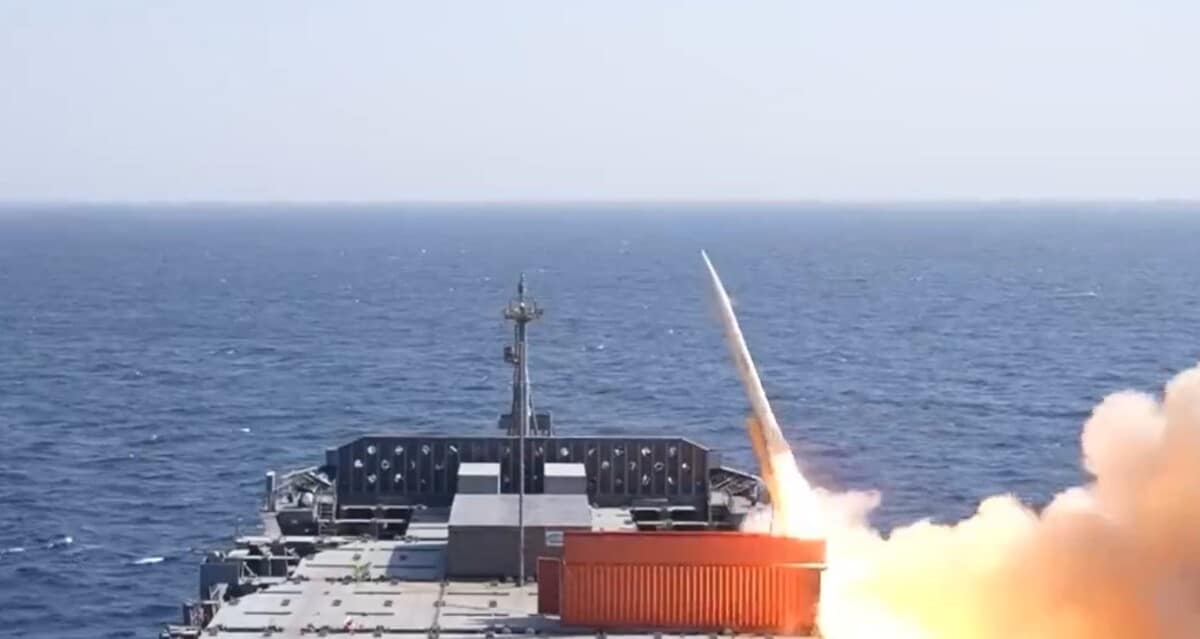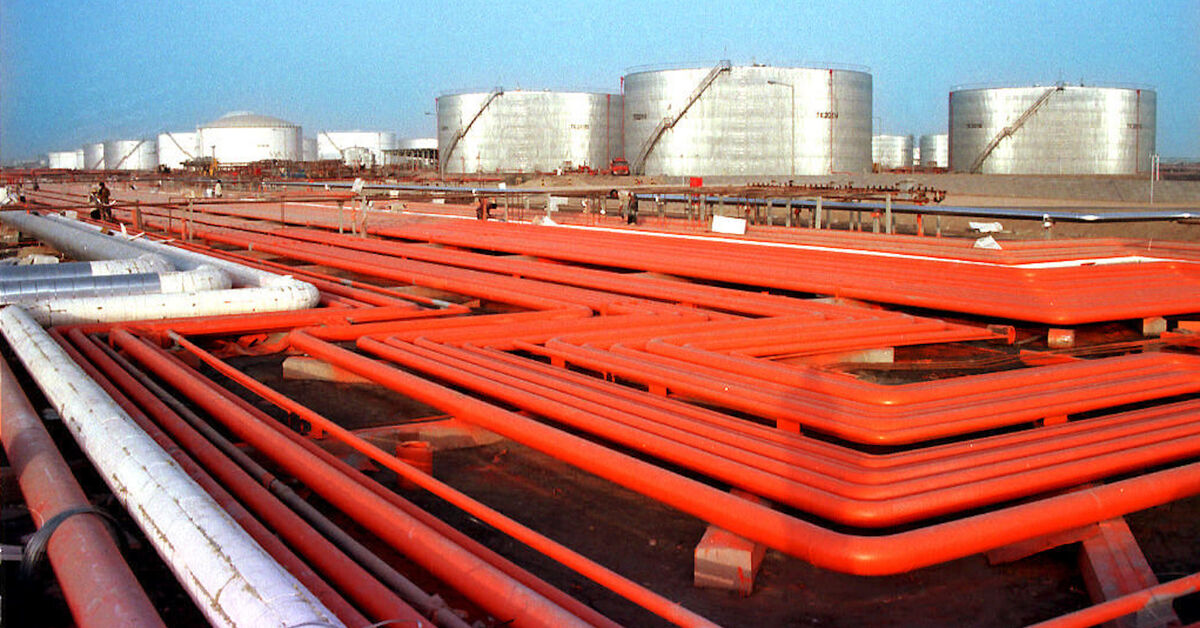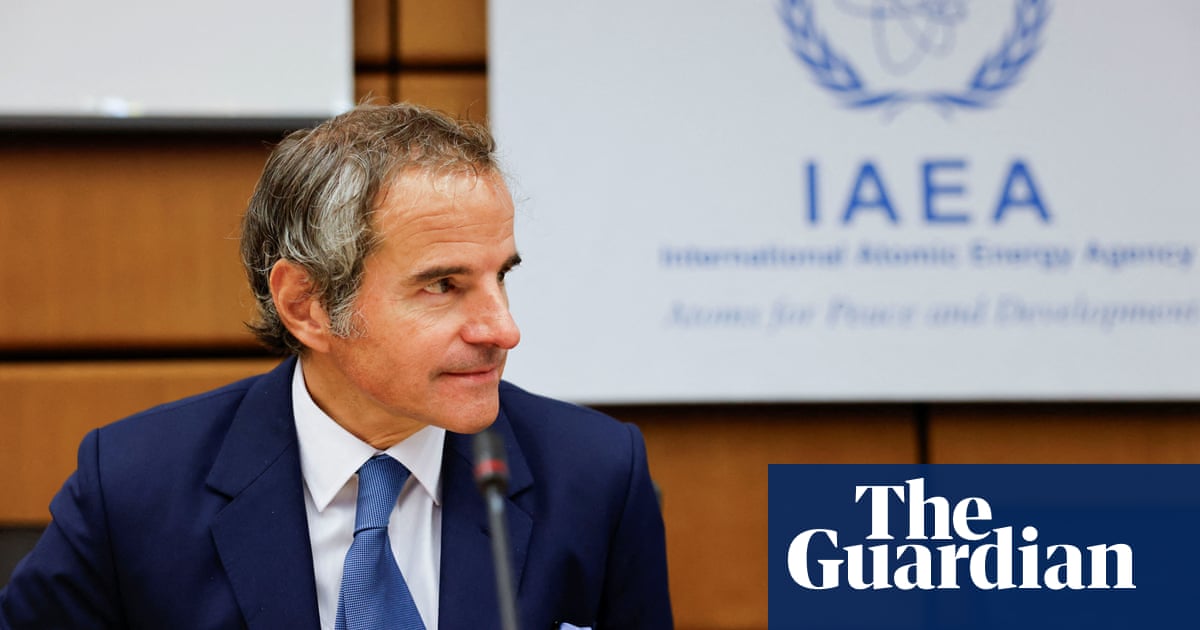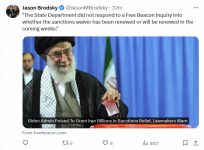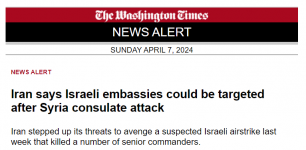Posted for fair use......
If the United States slid suddenly into the blazing abyss of hell, the Ayatollah Ali Khamenei’s prayers would be answered. The ayatollah is Iran’s “spiritual leader and its highest authority — he has the final say o...

www.americanthinker.com
February 24, 2024
Biden’s Iran Policy Is an Existential Threat
By
William Manning
If the United States slid suddenly into the blazing abyss of hell, the Ayatollah Ali Khamenei’s prayers would be answered. The ayatollah is Iran’s “
spiritual leader and its highest authority — he has the final say over all government matters in the country.” His rhetorical ethos and fervent prayer is “
death to America,” which he recognizes as the “
great Satan.” This is the liturgy and
policy of the Islamic Republic of Iran.
Democrat politicians reimagine their Iranian counterparts as Ivy League liberals instead of missile-firing, drone-flying, weapons-smuggling terrorists who promise death to America. The Obama administration negotiated the Joint Comprehensive Plan of Action (JCPOA), which lifted
oil sanctions and delivered
billions of dollars to Iran in return for an
agreement that Iran wouldn’t produce nuclear weapons for ten years — the blink of an eye in historical terms. The agreement was negotiated while Iran was delivering improvised explosive devices (
IEDs) in large volume to proxies in Iraq, killing and horrifically maiming thousands of American soldiers. Obama’s plan funded the IEDs, Hamas, Hezb’allah, the Houthis,
drone manufacturing, and missile
production, all helping Iran achieve its anti-American objectives.
President Trump
canceled Obama’s nuclear deal in 2018 to take “additional actions to counter Iran’s malign influence and deny Iran all paths to a nuclear weapon.” Severe sanctions were placed on exports of Iranian oil. The
Abraham Accords demonstrated a pragmatic foreign policy supporting peaceful coexistence between Arab states and Israel while further isolating Iran.
President Biden has attempted to renegotiate a nuclear deal with Iran. This has proven difficult, since Iran
refuses to talk to him. Despite this, Biden has delivered huge sums of money to Iran. Biden wants Iranian oil delivered to international markets to reduce gasoline prices at home. To accomplish this, Trump’s sanctions have not been
enforced by the Biden administration, resulting in “an
Iranian gain of $26.3 to $29.5 billion” since Biden took office. In 2023, six billion dollars was
released to Iran to be used for humanitarian purposes as a ransom for American hostages. Biden is now set to release
$10 billion more to a regime that believes that funding terrorists is a humanitarian response to counter the Great Satan.
Robert Malley was “appointed Special Envoy for Iran on January 28, 2021. Under President Barack Obama he served as Special Assistant to the President, Senior Advisor to the President for the Counter-ISIL campaign, and White House Coordinator for the Middle East, North Africa and Gulf Region in 2015-2016 and, before that, as Senior Director for the Gulf Region and Syria before joining the National Security Council staff in February 2014.” It also appears that Malley helped place
Iranian agents in the
State and Defense departments while he was negotiating with his buddies in Iran.
Democrats fund Iran and its terrorist proxies while Iran develops nuclear weapons under Biden’s nose. The Biden-Obama administrations have either criminally naïve, unclever, anti-American, or all the above.
Since Hamas attacked Israel on October 7, the U.S. has been reacting
ineffectively to attacks by Iranian proxies. Soldiers manning outposts in the Middle East should be defended by the full capacity of the U.S. military. Any enemy force that attacks Americans soldiers should be destroyed. If Biden is not prepared to protect soldiers manning remote outposts, these soldiers should be withdrawn, and the outposts abandoned.
After three soldiers were
killed in Jordan by Iranian proxies on January 28, U.S. government
spokesperson Sabrina Singh indicated that, “the President has said, we don't seek conflict.” Soldiers manning outposts in Syria, Iraq, and Jordan have been attacked hundreds of times. These attacks have intensified since Hamas sucker-punched Israel on October 7. Houthis in Yemen have attacked international shipping in the Red Sea. Navy SEALs died circumventing
shipments of Iranian weapons to Yemen. Iranian proxies
killed hundreds and wounded thousands of American soldiers during the Iraq War. America has been in a conflict with Iran for decades, regardless of what President Biden wants or Ms. Singh tells the press.
Senator Lindsey Graham called for U.S. forces to
destroy oil infrastructure inside Iran. This would be a bold move. Biden and his Democrat handlers wouldn’t consider this for two reasons: they aren’t bold people, and oil prices would surge north of $100/bbl. the day after the attack. Higher gasoline prices in an inflationary economy would be bad politics in an election year. Biden has other options. He could attack drone, missile, and weapons factories in Iran. This would impact Iranian proxies and
Russian soldiers fighting with Iranian weapons in Ukraine.
There are reports that Iran can
produce nuclear weapons in a matter of weeks. The U.S. must face the possibility that Iran already has a nuclear weapon. Would Iran use nuclear weapons? Only the ayatollah knows for sure, but one thing is certain: countries don’t spend billions of dollars developing weapons to not use them.
Biden should focus his attention on protecting American soldiers. On
February 2, Biden ordered attacks on Iranian proxies in Iraq and Syria. A couple of days later, the U.S. attacked the
Houthis in Yemen. Biden should allow the military to engage in tactics to destroy any enemy force in the region that threatens Americans. Attacks against Iranian territory should be considered strategically.
For decades, American politicians in both parties have warned that Iran was developing nuclear weapons and missiles to deliver them. Does Iran already have nuclear weapons? If so, what can be done to neutralize its capacity to use them? The U.S. and its allies should meet and decide how best to proceed. There are options:
- Destroy Iran’s nuclear research, development, and production capabilities.
- Leave the ayatollah to his own devices.
Don’t be surprised if a government spokesperson takes the stage someday soon and announces that Iran has successfully tested a nuclear weapon. Any decision an American president makes at that time will become much more difficult. The ayatollah’s threats will be taken more seriously. The security of the American people will be diminished.
This is not a suggestion to change the regime in Iran. The Iranian people should choose their own government. A nation’s capacity to wage war on the United States and its allies can be neutralized without winning the hearts and minds of its people and reimagining the nation as a Western democracy. The purpose of America’s government is not to spread democracy abroad, but to protect the security and interests of its people.
While the State Department frets over
microaggressions or
pronoun choices, Iran is destabilizing the Middle East and working frantically to develop atom bombs. When selecting political candidates this year, Americans should consider candidates for the House, Senate, and president that will engage pragmatically with Iran, which may already have nuclear weapons. In the meantime, Biden continues to fund the ayatollah’s work.
6 Comments
10 ONLINE
Sort By Best
Write your comment...
LOGIN
LOG IN TO COMMENT
Sharon Sapp
10 hours ago
Obama's still in charge.
Reply
Share
50
LEWIS GIBBS
7 hours ago
fixed the headline
OBAMA"S (Biden’s) Iran Policy Is an Existential Threat
Reply
Share
10
Kent Ramsay
9 hours ago
Question - who has more desire or proven results in "malign intention to destroy America" - Iran or The US Government under Democrats (with Mitch McConnell helping)?
The US Government is a real threat to destroy America and it is doing the job right now at Warp Speed. Iran is a ridiculous boogeyman created by people who want to distract us from the American Left burning down our house and raping all of our family right in front of our eyes.
Let us give true just right now to the people who really intend on destroying us. They are in the house right now with guns and gasoline and sick sexual appetites.
Reply
Share
40
dennis michael sullivan
8 hours ago
It should be obvious that the greatest threat is in the power centers in DC and surrounding areas.
Reply
Share
10
Kent Ramsay
7 hours ago
That is the focus of the Masters of the Universe. Or Lucifer.
Reply
Share
10
chuck
8 hours ago
Obama didn't want us to support regime change in IRAN, but he was Ok with supporting it in Israel and the USA.
Reply
Share
10
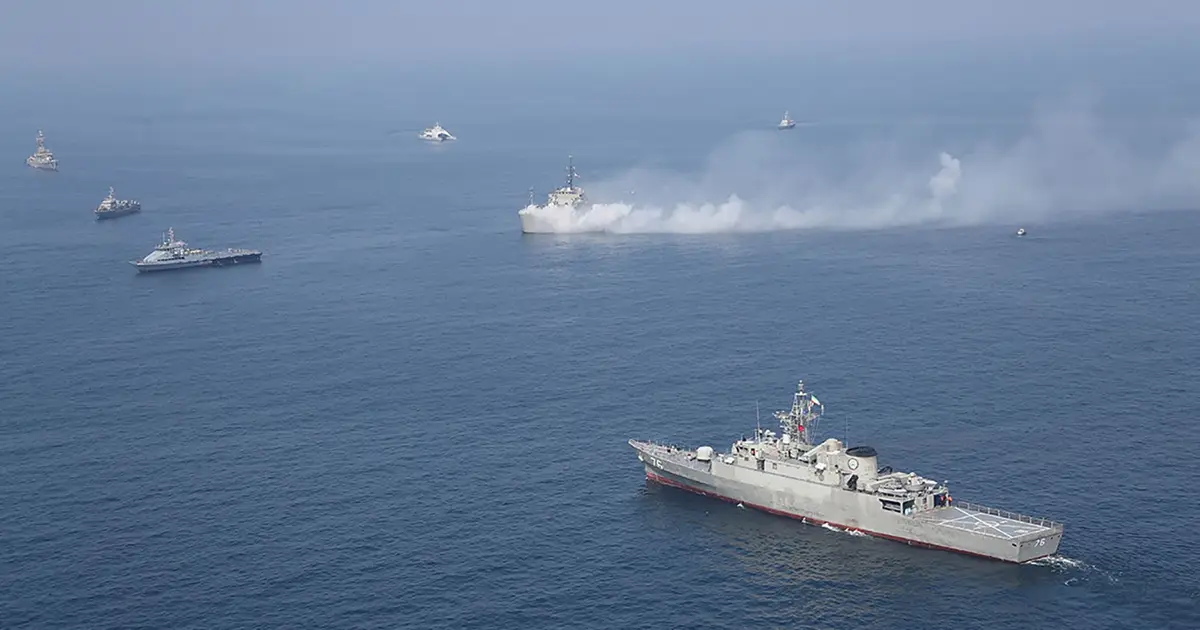 View: https://twitter.com/IranIntl_En/status/1757420466577244638?s=20
View: https://twitter.com/IranIntl_En/status/1757420466577244638?s=20


